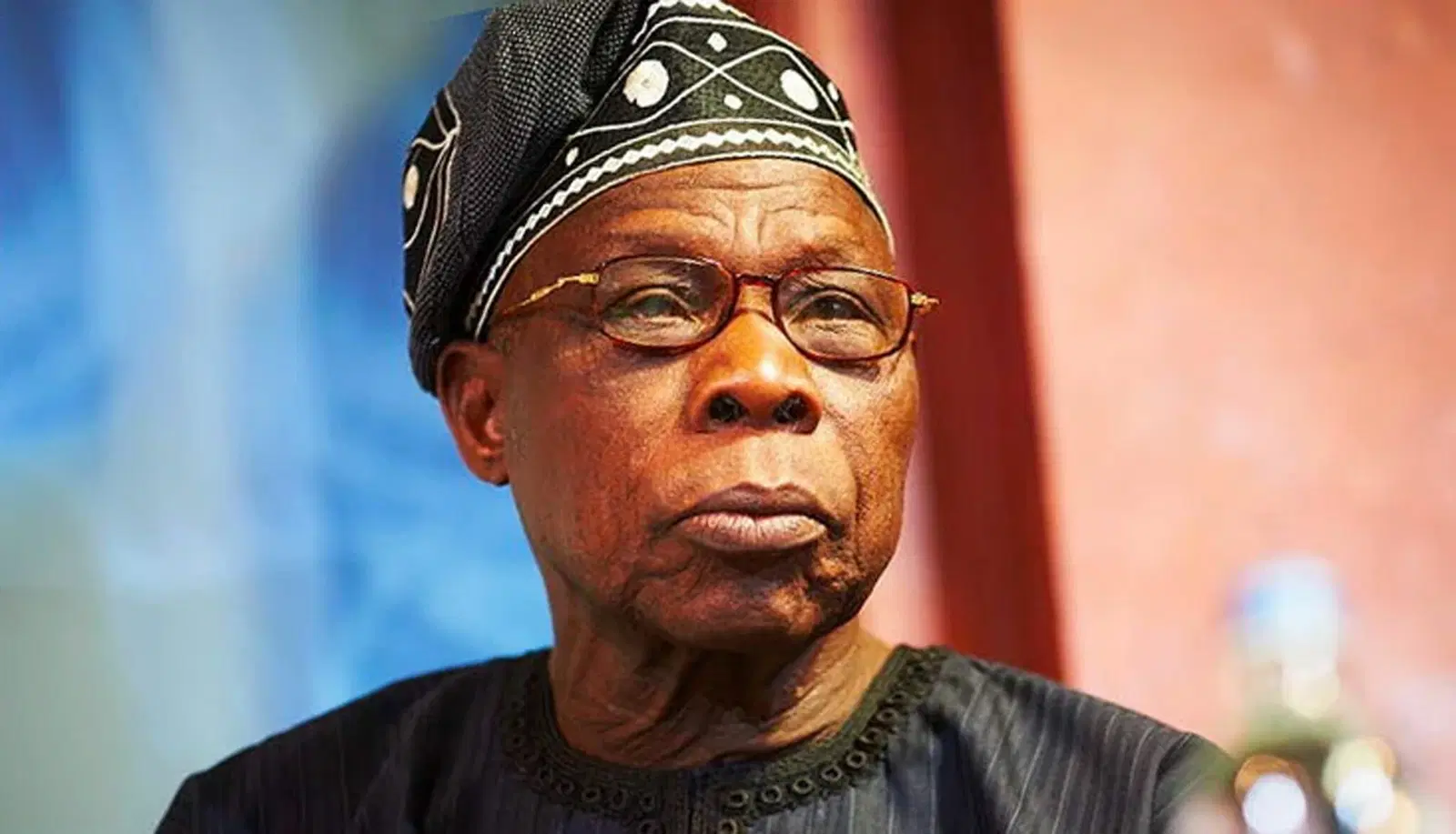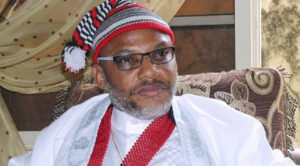
Obasanjo slams Buhari’s govt in new book, labels it corrupt, Nigeria’s worst
Former President Olusegun Obasanjo has launched a blistering critique of his successor, Muhammadu Buhari, describing his administration as the worst in Nigeria’s democratic history.
In one of the books released to mark his 88th birthday, “Nigeria: Past and Future,” Obasanjo criticised various policies and actions of the Buhari government, accusing it of massive corruption and mismanagement.
He also expressed concern that the current administration under President Bola Tinubu may be heading down the same path.
The first chapter of Obasanjo’s book is particularly damning, with harsh criticisms of the N15.6 trillion Lagos-Calabar Coastal highway project, which he claims is a wasteful and corrupt venture. He also targeted the N21 billion spent on the construction of a new official residence for Vice President Kashim Shettima, calling it a misguided priority, especially in a time of economic hardship. Obasanjo described these actions as emblematic of what he believes are the short-sighted and corrupt tendencies of the current administration.
“Typical examples of waste, corruption, and misplaced priority are the controversial Lagos-Calabar Coastal Road and the new official residence for the Vice President, constructed at a cost of N21bn during a time of economic distress. These projects, which the President has largely ignored in the face of public outcry, seem to be more about showing off than addressing the real needs of the country,” Obasanjo wrote.
The former president did not hold back in his criticism of Buhari’s record, emphasising that the corruption under his watch, aided by Attorney General Abubakar Malami, was unprecedented. Obasanjo claimed that Buhari’s administration was marked by “atrocious waste,” the entrenchment of corruption, and the stifling of efforts to combat graft.
He said, “The most egregious waste and corruption took place under President Buhari’s leadership, with the strong support of his Attorney General, Abubakar Malami.”
He went further to suggest that Tinubu’s government might even surpass Buhari’s in its propensity for mis-governance, adding, “Given what we’ve seen in the first two years of President Tinubu’s administration, it looks like the same transactional politics are at play, and the slogan seems to be ‘It’s my turn to chop.”
Obasanjo also criticised the pardon granted to former governors Joshua Dariye of Plateau State and Jolly Nyame of Taraba State, who were convicted for embezzling public funds. He blamed the decision on Malami’s influence, calling it a blow to the fight against corruption and a major disappointment for the Economic and Financial Crimes Commission (EFCC). He described the actions as a clear message that corruption would not be held accountable, demoralizing officials who were working to fight it.
The former president went on to recount how Buhari’s actions as a military leader in 1983 had condemned corruption, electoral malpractice, and mismanagement, leading him to justify a coup against the government of Shehu Shagari.
However, Obasanjo pointed out that Buhari’s administration failed to live up to those ideals when he assumed office in 2015.
“Despite his earlier words in 1983, Buhari’s presidency became the worst civil administration in Nigeria’s history,” Obasanjo wrote.
In the book, Obasanjo also reflected on Nigeria’s history of leadership failures, blaming corruption, bad governance, and self-interest for the country’s stagnation. He expressed regret that successive governments—both military and civilian—had continually recognized these issues but did little to effect meaningful change.
However, Special Adviser to President Tinubu on Media and Public Communications, Sunday Dare, dismissed Obasanjo’s criticism of the Lagos-Calabar Coastal Highway, calling it a visionary project with enormous economic potential. He contrasted it with what he described as Obasanjo’s failure to complete major infrastructure projects during his own presidency, such as the Lagos-Ibadan Expressway.
Dare also highlighted how the previous government struggled with the completion of the Lagos-Abeokuta road and other critical projects, while insisting that the Lagos-Calabar highway, once finished, would be one of the most transformative infrastructure projects in Nigeria’s history.
The Minister of Works, David Umahi, also defended the highway project, noting that the work was already 70 per cent complete, and he insisted that critics should not “follow the road” if they were not fully informed. He stated that the project would ultimately benefit Nigeria economically, urging Nigerians to ignore detractors.
Meanwhile, Obasanjo did not spare former Aviation Minister Hadi Sirika, accusing him of reckless handling of the Nigeria Air project. He alleged that Sirika spent billions of naira without delivering any substantial results, instead hiring an Ethiopian Airlines aircraft and painting it in Nigerian colors as a “parting gift.” Obasanjo described Sirika’s actions as a clear example of the kind of corruption that persisted under Buhari’s government.
Dangote refinery reduces petrol loading cost
Obasanjo also lamented the broader culture of waste and corruption, drawing from both his time in office and the mismanagement seen in subsequent administrations. He recalled the $150 million loss on the balloon communication project during the military rule of General Murtala Mohammed and pointed out that such inefficiencies continued under Buhari and other leaders.
Obasanjo’s criticisms have sparked a fierce debate, with Tinubu’s administration defending its actions and the projects it deems essential for Nigeria’s long-term development. While Obasanjo’s reflections on Nigeria’s leadership history have caused controversy, they also highlight the persistent challenges the country faces in overcoming corruption and ensuring effective governance.
INC dares Wike on Fubara’s impeachment, demands apology
Share your story or advertise with us: Whatsapp: +2348033202396 Email: sentinelnewsng@gmail.com








